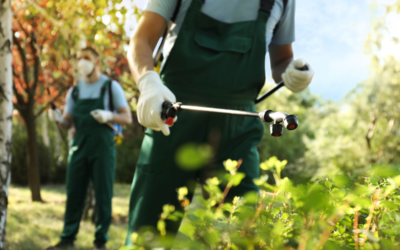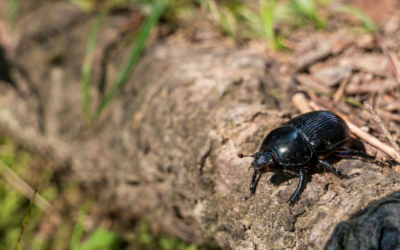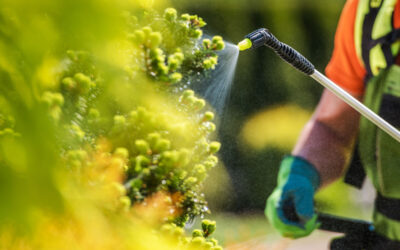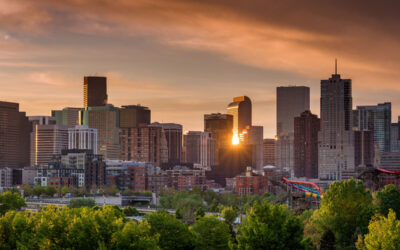As springtime approaches, homeowners’ thoughts turn to Colorado’s great outdoors and ways to enjoy it. Often that’s right in their own back yards, so it’s important to build a space to enjoy for years to come. And one of the things that can have a big impact on that enjoyment is the choice of trees.
Why It’s Important
As any Front Range gardener can testify, Colorado’s climate and environment present challenges to growing things, and that includes trees. Wide fluctuations in temperature and moisture put needless stress on trees that aren’t well adapted to those extremes. Some have wood too brittle to stand up to our high winds and heavy snow and ice loads. Other trees are known to be susceptible to devastating insects and diseases. Some choke out native species. And some are just unable to grow well in our climate.
Species to Avoid
Colorado State University in conjunction with the US Forest Service, the Colorado Tree Coalition, and the International Society for Arboriculture has identified a number of tree species that should be avoided for a variety of reasons.
Ash Trees
Beautiful and quick-growing ash trees have come under attack by the emerald ash borer, a lethal insect that threatens to wipe out a large number of the 1.5 million ash trees in the Denver metro area. Some preventative measures may prove helpful, but until the extent of the infestation is known, urban forestry experts recommend forgoing any new plantings.
Aspen
Aspens fairly scream “Colorado!” Our mountains are covered by them and thousands of people flock to the high country to see them every year. And that’s where they should stay. Aspens thrive above 6,500 feet but are very finicky at lower elevations. Plus they propagate by sending up suckers that can be nearly impossible to control. Leave them in the mountains where they belong and use them as an excuse to get out of town for some fine fall viewing.
Austrees
The Austree is a hybrid willow that has become popular due to its extremely fast growth. They can be a short-term solution to erosion control, but in an urban setting their problems outweigh their advantages. Like other willows, they are water-hungry with invasive root systems that can clog sewer and septic systems. Suckers can be hard to control, and the trees are very messy, dropping large amounts of leaves and twigs year-round.
Black Walnut
Another beautiful tree that does well in our climate but is subject to a lethal fungus disease called thousand canker that has spread from the west coast to Colorado. Their wood is great for furniture and their nuts are nutritious, but they’re heavy pollen producers and secrete growth-inhibiting toxins that make them a poor choice around flower and vegetable gardens.
Cottonwood and Other Non-Native Poplars
These are fast-growing trees with brittle wood and shallow root systems, making them susceptible to Colorado’s extreme weather conditions. Because they quickly grow to be very large they can cause extensive damage if they break or fall, need lots of water, and are expensive to maintain and remove. They also harbor a large number of pests, and female cottonwood trees drop a huge number of messy “cotton” seeds.
Russian Olive
Widely planted around Denver at one time, Russian Olives are now considered a noxious species in Colorado. They are extremely hardy trees that propagate freely and take over areas near rivers and streams, choking out indigenous plants that native animals need to survive. Plus they’re messy and smell bad.
Siberian elm
Like its cousin the American elm, Siberian elms were heavily planted as street and landscape trees. But Siberian elms have brittle branches that are prone to breaking and cause both damage and create messy streets and lawns. While Siberian elms are resistant to the Dutch elm disease that plagues American elms, leaf miners and elm leaf beetles are a problem.
Silver maple
Silver maple is another fast-growing shade tree that’s brittle and shallow-rooted, making it susceptible to severe weather. Its shallow roots can invade sewer pipes and cause cracking and heaving of concrete driveways and walks.
Tamarisk (Saltcedar)
Like the Russian olive, the tamarisk was introduced as an ornamental tree, but this invasive species is now considered a noxious plant in Colorado. Besides choking out native vegetation, the tamarisk secretes salt through its leaves, ruining the soil for other plants.
Tree-of-Heaven (Ailanthus altissima)
This is another attractive non-native tree that was brought to the US as a fast-growing shade tree. But it has become highly invasive due to aggressive suckering and it secretes foul-smelling compounds that inhibit growth of other vegetation. It is now considered a noxious plant in the US and other countries.
White-Barked Birches
Similar to the aspen, the white birch is a high-altitude tree native to Canada and the northern US. Its native range extends as far south as Long’s Canyon in the Boulder Open Space area. It’s a shallow-rooted, short-lived tree that doesn’t tolerate drought, heat, or high winds making it a poor choice for most Front Range locations.
Willows
The wispy delicate branches of the willow make it a beautiful landscape tree. But its aggressive water-hungry root system wreaks havoc on irrigation systems, sewer lines, and septic systems. Its weak wood is prone to cracking, and it only lives for about 30 years.
Need Help? Call a Pro
The choices of trees, shrubs, and other foundation plantings can be overwhelming. Donovan Arborists offers planting, pruning, and shearing services as well as a complete landscape maintenance package for property in the Denver area. We can help you choose the plants that will work best with your home’s design and growing conditions. And we’re always happy to give free estimates to homeowners and property managers for any services they may need.




